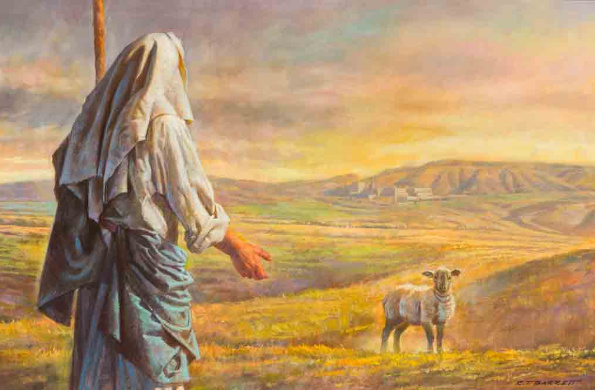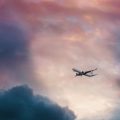I remember when it was hard to find things on the internet because the online data was still so small and the wealth of information was not posted yet. We had small dialup connections that transmitted at 14.4 kbit/s. While our modems were online back then, we could not receive phone calls. The Web was so small back in those days; we used it out of interest and fascination, I suppose. I remember wondering at the time, “What is this thing?”
Some people became familiar with its use more quickly because of their involvement in school, work, or technology development. Computers were still brand new at the time. In the early days, we really didn’t understand this thing and most of the elements were problematic. Pornography was a new term that soon became a prevalent contributor and the internet was often its source. Financial risk and monetary danger were paramount concerns. The safety features and online security was not built yet. Still, the internet grew in leaps and bounds, and soon the business community adopted the tool and integrated it into company marketing and revenue plans. These changes required updates to the technology so that it could be used quickly, efficiently, effectively, and securely by people, businesses, and organizations all across the world. Over the next two decades, this new technology has exploded onto the scene.
That is still happening with stronger TLS protocol, encryption, and digital certificates. The technology is still wrought with negative components and requires caution, discernment, and prudence. But when we use it correctly, it opens a world to us that we never dreamed of.
Today’s internet has become our online journal as well. Most don’t even realize that is what’s happening when they post on Facebook, Instagram, LinkedIn, or a hundred other mediums used every day. Phonebooks have become obsolete in favor of online counterparts.
`
We are probably all familiar with the I’m a Mormon campaign. According to Wikipedia, I’m a Mormon was an advertising campaign produced by The Church of Jesus Christ of Latter-day Saints and aired on American television beginning January 2011. Wikipedia may be the predominant online encyclopedia today, but when I Googled the term, it came up with about 3,310,000 results in 0.66 seconds. My point? This online journal we call the internet is documenting our lives, events, world and political history, and much, much more without us even realizing it.
Cell phones, websites, school yearbooks, and governments record our history. We recently celebrated Memorial Day, formally called Decoration Day, as was so astutely described by a friend of my younger days, Ron Drake, who writes a column for The Times-Independent called “Castle Valley Comments.” He has been writing that column every week for more than 40 years. This is just one more way that our histories are being documented with or without us. There are tons of other examples as well.
With all of this, the uses of the Internet are still only just beginning because content is increasing daily and technology is constantly making possible the realization of what was once an only dream.
But our economic and social lives are not the only elements that are transformed. Religious context has been changed in a similar way. Faith is often described as just the beginning. The diagram used by missionaries everywhere often shows faith as the first in a series of steps. This helps new members and investigators understand the sequence of the first principles and ordinances of the gospel.
Chronologically, faith comes early on along with hope before the steps to repentance and baptism. It’s a great metaphor. Taking the first step of faith leads to the next principles and ordinances of the gospel. Faith is also described as a foundation, which I believe is also a valuable image as well. It holds up and supports the Church’s teachings, our allegiance to Jesus Christ, and the truths of the gospel principles that are so abundant in our day.
Using another metaphor, the prophet Alma from the Book of Mormon described faith this way:
21 And now as I said concerning faith—faith is not to have a perfect knowledge of things; therefore if ye have faith ye hope for things which are not seen, which are true.
He continues, teaching that faith is like a seed.
28 Now, we will compare the word unto a . Now, if ye give place, that a may be planted in your , behold, if it be a true seed, or a good seed, if ye do not cast it out by your , that ye will resist the Spirit of the Lord, behold, it will begin to swell within your breasts; and when you feel these swelling motions, ye will begin to say within yourselves—It must needs be that this is a good seed, or that the word is good, for it beginneth to enlarge my soul; yea, it beginneth to my , yea, it beginneth to be delicious to me.
29 Now behold, would not this increase your faith? I say unto you, Yea; nevertheless it hath not grown up to a perfect knowledge.
30 But behold, as the seed swelleth, and sprouteth, and beginneth to grow, then you must needs say that the seed is good; for behold it swelleth, and sprouteth, and beginneth to grow. And now, behold, will not this strengthen your faith? Yea, it will strengthen your faith: for ye will say I know that this is a good seed; for behold it sprouteth and beginneth to grow.
31 And now, behold, are ye sure that this is a good seed? I say unto you, Yea; for every seed bringeth forth unto its own .
32 Therefore, if a seed groweth it is good, but if it groweth not, behold it is not good, therefore it is cast away.
33 And now, behold, because ye have tried the experiment, and planted the seed, and it swelleth and sprouteth, and beginneth to grow, ye must needs know that the seed is good.
34 And now, behold, is your ? Yea, your knowledge is perfect in that thing, and your is dormant; and this because you know, for ye know that the word hath swelled your souls, and ye also know that it hath sprouted up, that your understanding doth begin to be enlightened, and your doth begin to expand.
All these metaphors are worthwhile. But in my mind, faith is so ubiquitous that it becomes like a blanket that covers or surrounds us so pervasively it is as prevalent as the air we breathe and influences every aspect of our lives. True, faith is necessary for new investigators to take the necessary steps to change their lives and become faithful, involved disciples of Jesus Christ. But it is also required for long-time members to take that first step into the dark, when the way forward is not clear, and that happens often — hundreds, possibly thousands, of times in our lives.
So the depiction of faith for me is more like an atmosphere that surrounds everything we do: our choices, our job (or lack thereof), our education, family, church activity, and social life. Faith is necessary when times are tough. Faith is required when there are unanswered questions. Faith is part of _______ (fill in the blank). Our faith in Jesus Christ becomes part of everything we do.
In that way, Jesus Christ is in every aspect of our lives. Rhetorically speaking, I say to myself, “So that’s why I need to pray and read scriptures every day, repent, hold family home evenings, show patience, attend our meetings, repent, go the temple, partake of the sacrament, and repent and…” What I have come to realize is that is that faith is an integral part of every day, every decision, every interaction—and when we utilize faith in this way, we are not alone. With it, we aren’t lost even in spite of the circumstances and hardships that are sure to stretch us to our limits. And yes, I purposely included the word “repent” three times in that list because we don’t get things right the first or second or third time—no one expects us to. Repentance is part of our everyday lives consistently.
The lamb in the parable of the lost sheep was not expected to find its way home on its own. We did not suppose the lamb would come to its senses and finally make its way home. Once separated from the rest of the flock, risks increased. The lamb was in danger, its survival doubtful. It needed to be brought home.
Similarly, when we or others feel lost, we often don’t find our way back on our own. Someone reaches out to us to recover us and help us return. Without that, it is hard to move forward, but we can find reassurance in God’s love for us.
Sometimes when we are lost, He will also find us just as He did in the parable of the lost sheep. President Uchtdorf taught about this parable: “Is it possible that the Savior’s message was that God is fully aware of those who are lost, and that he will find them, that he will reach out to them, and that he will rescue them?”
Our Savior, the Good Shepherd, knows when we are physically, spiritually, and emotionally lost and that we need help to get recovered. We can’t do it all on our own. Thankfully, that’s what the gospel of Jesus Christ is all about: saving those who can’t rescue themselves.
That’s all of us—every one of us!
“Twas a sheep not a lamb that strayed away
In the parable Jesus told,
A grown-up sheep that strayed away
From the ninety-and-nine in the fold.
And why for the sheep should we seek
And earnestly hope and pray?
Because there is danger when sheep go wrong;
They lead the lambs astray.
Lambs will follow the sheep, you know,
Wherever the sheep may stray.
When sheep go wrong, it won’t take long
Til the lambs are as wrong as they.
And so with the sheep we earnestly plead
For the sake of the lambs today,
For when sheep are lost, what a terrible cost
The lambs will have to pay!”― C.C. Miller
President Uchtdorf, after he asked the question mentioned above, continued:
“Does the sheep need to know how to use a complicated sextant to calculate its coordinates? Does it need to be able to use a GPS to define its position? Does it have to have the expertise to create an app that will call for help? Does the sheep need endorsements by a sponsor before the Good Shepherd will come to the rescue?
No. Certainly not! The sheep is worthy of divine rescue simply because it is loved by the Good Shepherd.
To me, the parable of the lost sheep is one of the most hopeful passages in all of scripture.
Our Savior, the Good Shepherd, knows and loves us. He knows and loves you.
He knows when you are lost, and He knows where you are. He knows your grief. Your silent pleadings. Your fears. Your tears.
It matters not how you became lost—whether because of your own poor choices or because of circumstances beyond your control.
What matters is that you are His child. And He loves you. He loves His children.”
Our Heavenly Father expects us to use all the resources at our disposal. That’s why they were given to us. This includes allowing the Savior to redeem us and rescue us. Only He can do it—He alone.
How does He do it? We don’t know exactly, but understanding the details and makeup of compensation is not a requirement before benefiting from the Atonement of Jesus Christ. Faith in the Savior and attempting to follow Him is what is required for Him to rescue us.
About Walter Penning
In 1989, Walter Penning formed a consultancy based in Salt Lake City and empowered his clients by streamlining processes and building a loyal, lifetime customer base with great customer service. His true passion is found in his family. He says the best decision he ever made was to marry his sweetheart and have children. The wonderful family she has given him and her constant love, support, and patience amid life's challenges is his panacea.
Twitter •







